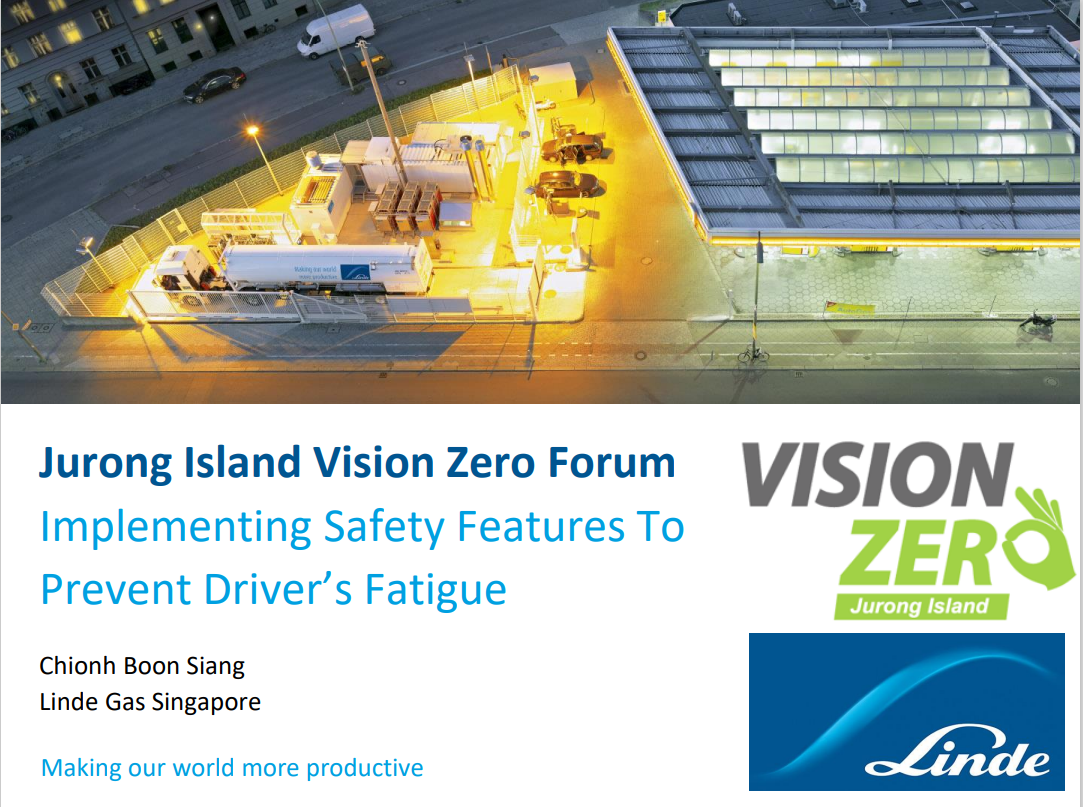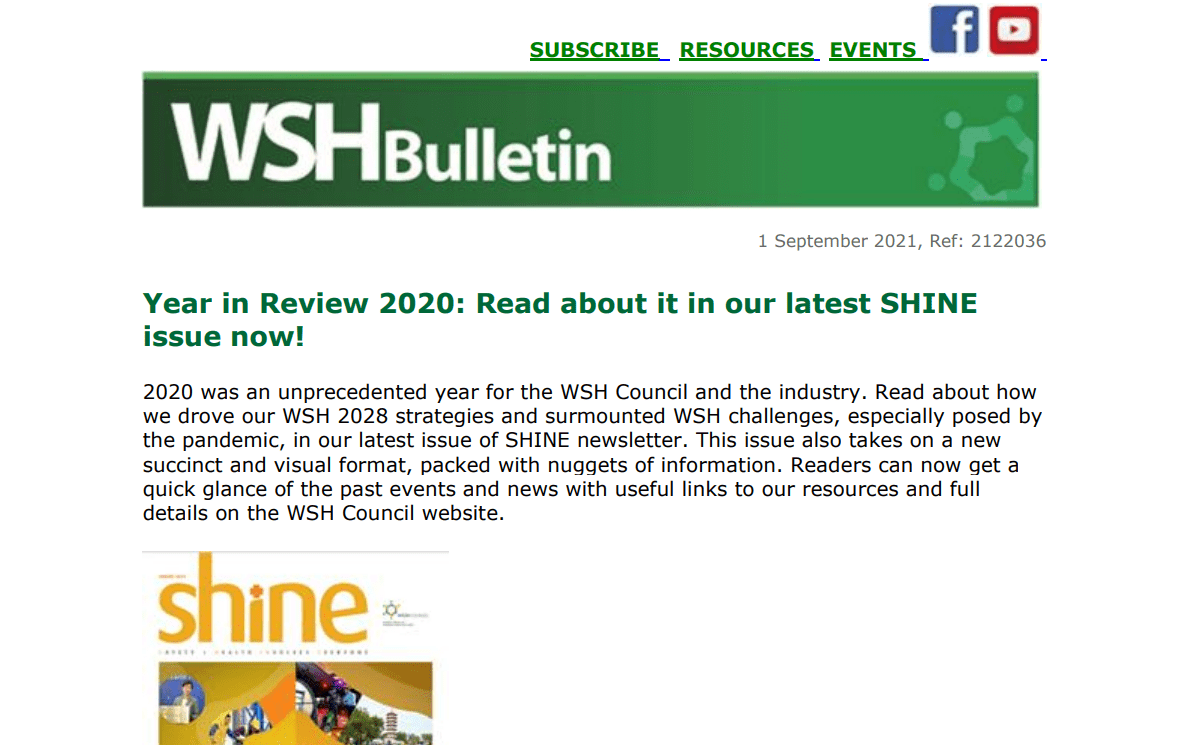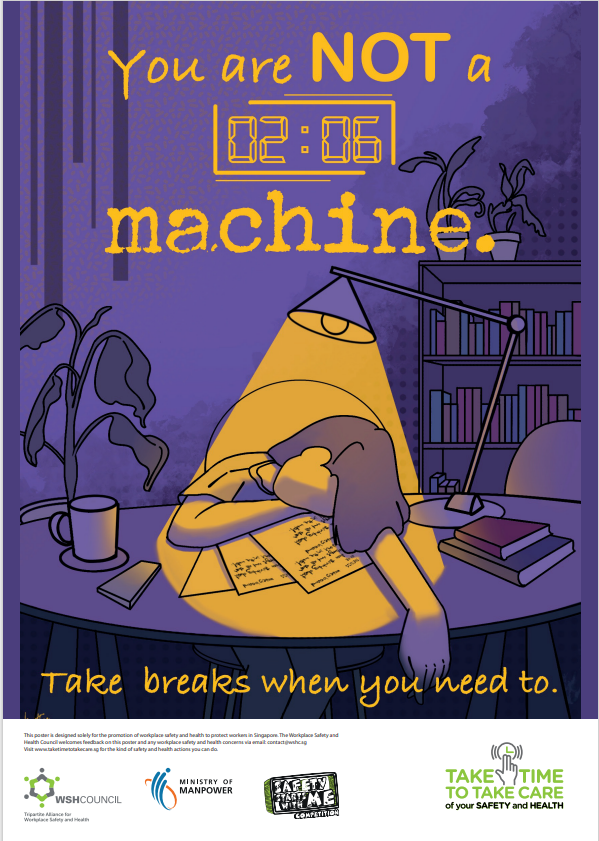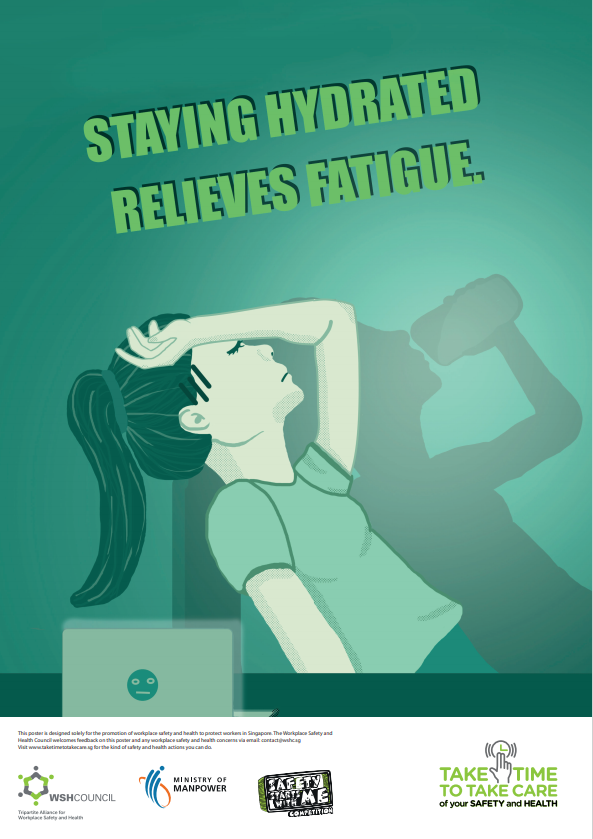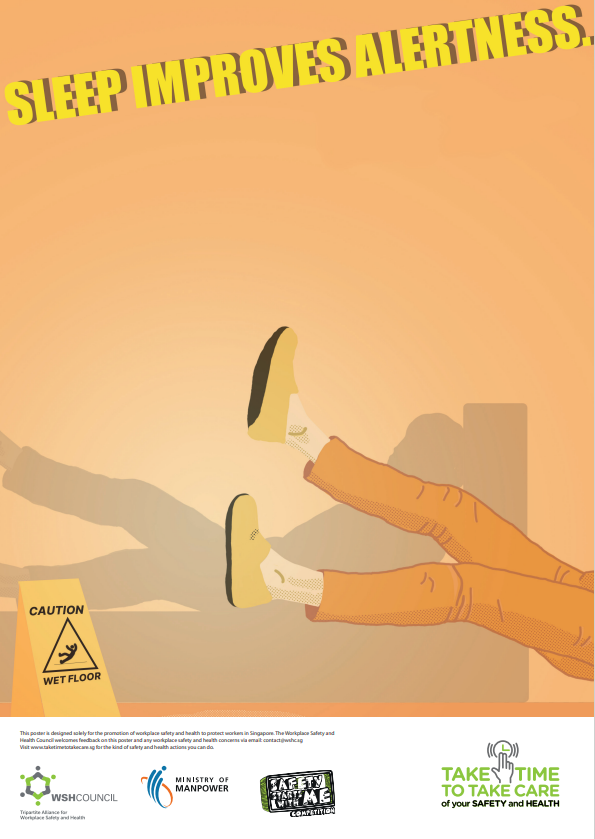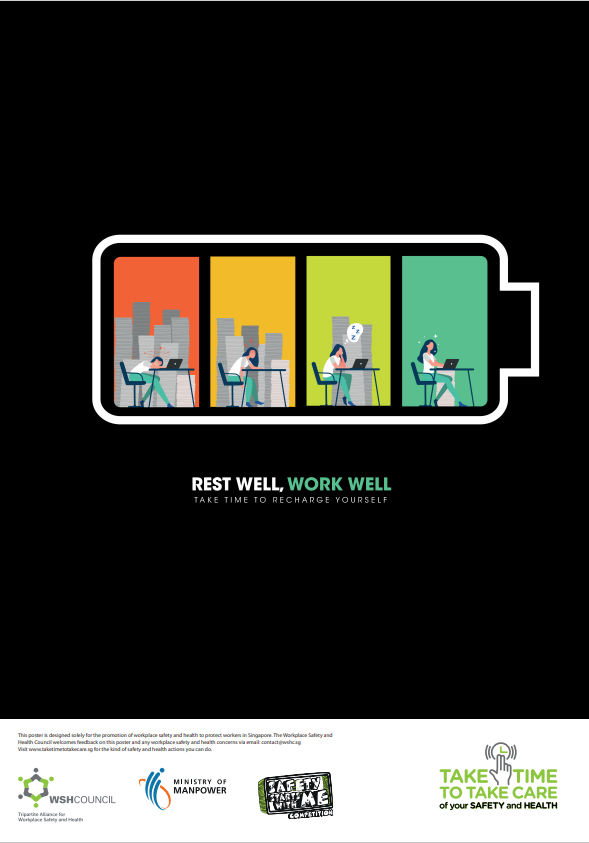Fatigue Management
Fatigue is a state of tiredness leading to reduced mental and/or physical performance.
Fatigue in the Workplace
Excessively long working hours and poorly planned shift work can result in workers' fatigue. Poor work schedules where there are inadequate rest breaks can also accelerate the onset of fatigue in the workplace, especially when the work is demanding.
Effects of Fatigue
Fatigue at work can affect your
- Alertness
- Concentration
- Judgement
- Motor skills
- Reflexes
These can lead to an increased risk of workplace accidents and near-miss incidents, endangering yourself at the workplace.
Preventing Workplace Fatigue
The best approach to preventing fatigue is having adequate rest or sleep.
As fatigue is normally caused by a confluence of factors, it is necessary to recognize them to prevent the onset of fatigue. A combination of risk control measures will hence be more effective in managing workplace fatigue.
|
Fatigue Factor |
Control Measure(s) |
|
Dim work environment |
Provide adequate lighting. |
|
Hot working environment |
- Provide adequate ventilation. - Provide facilities for break. |
|
Long working shift |
- Limit shift work to not more than 12 hours, including overtime. - Ensure adequate staffing on a shift. |
|
Sustained mentally demanding work |
Schedule complex tasks during the day. |
|
Monotonous work e.g. standing in a fixed position for extended time periods |
Include activity breaks e.g. simple stretching exercises of limbs and body. |

